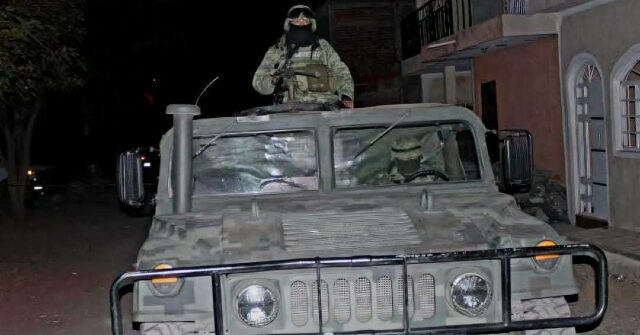In recent incidents in Michoacán, Mexico, four soldiers lost their lives due to attacks by cartel gunmen who utilized improvised explosive devices and land mines as part of an ongoing conflict for control of drug trafficking routes. This stark escalation of violence indicates a troubling development in the tactics employed by rival cartels engaged in this brutal turf war. The first casualty occurred in the town of Cotija, where a convoy of soldiers encountered a minefield laid by cartel operatives during routine patrols. The attack resulted in injuries to seven soldiers, two of whom ultimately succumbed to their injuries, underscoring the dangers faced by Mexican military personnel in their efforts to maintain order in a region plagued by organized crime.
The Mexican Army’s spokesperson, Ricardo Trevilla Trejo, attributed the minefield attacks to Carteles Unidos, a coalition formed by smaller criminal organizations and factions of larger cartels such as Los Viagras and La Familia Michoacana. This alliance is reportedly a strategic response to the advancing influence of the notorious Cartel Jalisco New Generation (CJNG), which has become a dominant force in the drug trade. Trevilla Trejo explained that the use of mines was a tactical maneuver to deter the incursions of CJNG’s heavily armored convoys, emphasizing the increased intensity of the warfare amongst these criminal factions and the lengths to which they are willing to go to protect their territory.
Days after the initial explosion, another incident took place near Buena Vista, where two additional soldiers were killed after driving over yet another cartel-laid minefield. These attacks highlight a shift in cartel warfare tactics, which now increasingly involve the use of lethal devices meant to inflict maximum damage to military forces and discourage law enforcement presence in contested territories. The growing reliance on such brutal methods reflects a grim reality in Michoacán, where the military’s presence is deemed necessary to combat entrenched cartel activity but also poses a significant risk to those within these operations.
In response to the heightened violence and the threats posed by landmines, Mexican military and state police forces have mobilized to conduct operations aimed at identifying and neutralizing these explosive threats. There is a concerted effort to dismantle the minefields set up by cartels, focusing on ensuring the safety of soldiers and civilians alike. State officials, such as Carlos Torres Pina, head of the Michoacán Secretary of State, have acknowledged the urgent need for specialized equipment and are considering the procurement of anti-mine personnel carriers to enhance operational safety during patrols in the increasingly perilous environment.
The situation in Michoacán not only highlights the dangers faced by Mexican soldiers but also points to a broader crisis within the country regarding cartel activity and violence. The targeted attacks and sophisticated tactics adopted by cartels illustrate a significant challenge for authorities attempting to restore stability. As the Mexican government intensifies its campaigns against organized crime, it must grapple with the complexities of warfare that have infiltrated rural communities where violence has become a normalized aspect of daily existence.
The cartels’ strategy of employing mines and explosives signals a new level of escalation in their ongoing battles. It is increasingly apparent that the conflict extends beyond mere drug trafficking to a fight for survival among rival criminal organizations. The losses suffered by the military indicate that substantial military force may be required to counter the entrenched power of these cartels, but it also raises pressing questions about the safety of those tasked with enforcing law and order in an arena marked by such brutal violence. As these incidents unfold, the need for innovative strategies to combat this insidious threat becomes more critical, emphasizing the complex nature of the conflict in Michoacán and the broader implications for national security in Mexico.

